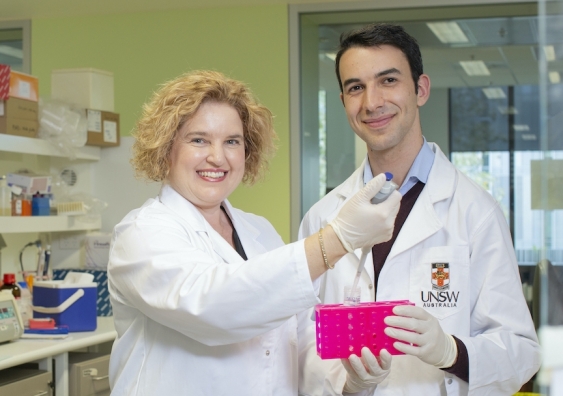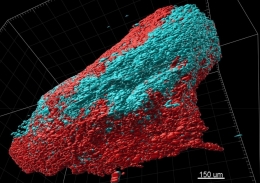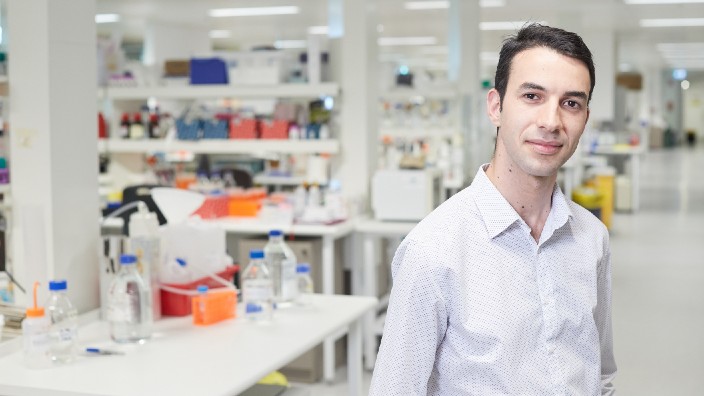Greek Australian, John Kokkinos, is part of a team of medical researchers at the University of New South Wales who have made a world-first breakthrough in the fight against pancreatic cancer.
The multi-disciplinary team, led by cancer biologist Associate Professor Phoebe Phillips, have successfully grown a complete human pancreatic tumour model in a petri dish.
Kokkinos, who is a UNSW Scientia PhD student and the son of Father Dimitrios Kokkinos from St John Greek Orthodox Church in Parramatta, was challenged by Associate Professor Phillips to create the model when he first embarked on his PhD. He tells The Greek Herald that the process was a challenging one, but worth it in the end.
“A similar model has been done in prostate and breast cancer by some researchers at the University of Adelaide many years ago. Once I received the challenge from my supervisor, I began to research the model and even visited the lab in Adelaide to learn the technique,” Kokkinos tells The Greek Herald.

“After that, I returned to my lab to try and implement it in pancreatic cancer. It took a lot of trial and error but eventually, we found the right technique and the final protocol that we can now use routinely.”
Game-changer in pancreatic cancer:
The model, which is grown from pancreatic cancer tumours taken from patients during surgery, is particularly significant as it stays in tact for 12 days and offers a complete view of the tumour.
“In pancreatic cancer, other researchers have tried doing something similar but they can only grow the pieces of tumour for two to three days maximum,” Kokkinos explains.
“With our model, we’ve confidently shown now that we can go up to 12 days and maintain the whole tumour architecture. That architecture is what’s really the game-changer in pancreatic cancer… as we can very closely study the biology of these cells and hopefully, this will lead us to new insights into how pancreatic tumours grow and spread around the body.”
Kokkinos adds that the benefit of this longevity is there is a greater potential for testing the effect of different chemotherapy drugs on the cancer, and offering personalised treatments to patients in the future.

“The other factor that’s really important and exciting for us, is the potential to test different chemotherapy drugs on each individual tumour that we’re growing, determine which drug the tumour responds to and then feed that back to the clinicians,” Kokkinos says.
“If that all works out, it’ll be a really nice way to personalise treatment for each individual patient rather than just throwing a cocktail of drugs at the patient, hoping one of them will work.”
‘Being Greek Australian is a driving force in everything I do’:
Creating such a successful model is no small feat for someone who is only 24 years of age. With that said, we just had to ask what inspired Kokkinos to become involved in the medical field in the first place.
“Being Greek Australian has been a real driving force in everything that I do in life, not just research. What drives me in research is a commitment and dedication to serve mankind and I think alot of that comes down to that spirit of filotimo,” Kokkinos says.

“And then another factor for me is having seen our grandfathers and forefathers, how they persevered through their challenges and fought for their country and faith. I think it’s our duty as third and fourth generation Greek Australians to take on this spirit of courage and perseverance and translate it into the challenges we face today.”
And how exactly does Kokkinos plan to use this brave spirit himself? To continue his research in pancreatic cancer and one day, study postgraduate medicine.
“The first test for our team now is to see whether our model can predict a response to chemotherapy, which will take a bit of time to do. But if that’s successful and we get enough funding, we can start a clinical trial,” Kokkinos explains.
“And after my PhD, I’m still considering doing postgraduate medicine because I think… to be able to do research and at the same time, deal with the patients themselves and help them with our research, is something that excites me and I hope to be able to do that in the future.”
A strong goal from a young Greek Australian who has a very bright future ahead of him.

